From the ![]() Coffee Issue
Coffee Issue
Whether we like to admit it or not, coffee is a ubiquitous commodity. It could be a specialty roast curated to perfection, sourced sustainably from a family farm deep in a tropical forest, or a cup from a convenience store. Whatever the case, we can all agree almost every culture in the world has a version of a caffeine fix.
But what about what we eat with our coffee? In the U.S., a bagel, croissant or donut is an obvious contender, but if we look closer, what we find are actually a multitude of cultural offerings with which to pair the globally consumed beverage. This selection is particularly strong in Los Angeles, with its rich ethnographic landscape. You can have Oaxacan for breakfast, stop at a Persian grocery for snacks, feast on Thai before heading out for Ethiopian, explore San Gabriel for regional Chinese fare, or head to the beach for a Californian raw vegan delight.
One can then imagine that buttery baked goods are just the starting point in terms of what we pair a coffee with, not to mention varieties of coffee preparation, quality and consumption. Cappuccinos may be a well-known iteration by now, but what about Thai iced coffee or the Ethiopian Buna coffee ceremony? What coffee pairs best with a fresh concha, and how do we decide which specialty roast latte goes hand-in-hand with a morning pastry?
To discover a few of L.A.’s less widely explored coffee-food pairings, I set out to see how different cultures across the city enjoy food with their coffee. Well beyond a morning ritual, my expedition revealed gems of cultural ceremony and comfort, and lots of coffee.
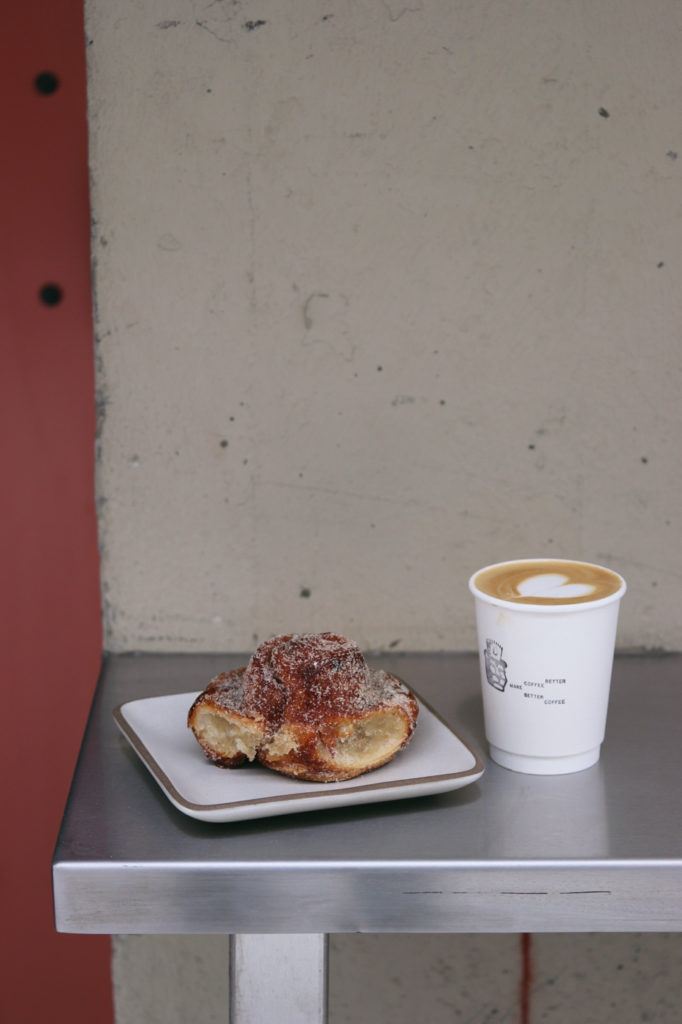
European
Tartine Manufactory
I started out in familiar territory: Tartine. As a Bay Area native, I still feel there’s something special about only having Chad Robertson’s world-famous bread when I’m home, sourced from the original Tartine location (on a week day obviously, I’m not an amateur). That being said, I’m a sucker for Tartine’s morning bun, and truth be told, I’m not upset that I can now enjoy it on demand.
“Classic” morning pastries—i.e. the croissant—are found in almost every coffee shop in the U.S. But for me the penultimate sweet buttery pastry of indulgence is the Tartine morning bun. The dough is flaky, buttery goodness that’s not too sweet on its own, complimented by a deliciously caramelized outer crust sprinkled with sugar, all holding together swirls of sugary cinnamon with a light touch of orange zest. This iconic pairing was the perfect place to start my coffee journey, the familiarity of buttery, sweet dough and a superb cup of coffee.
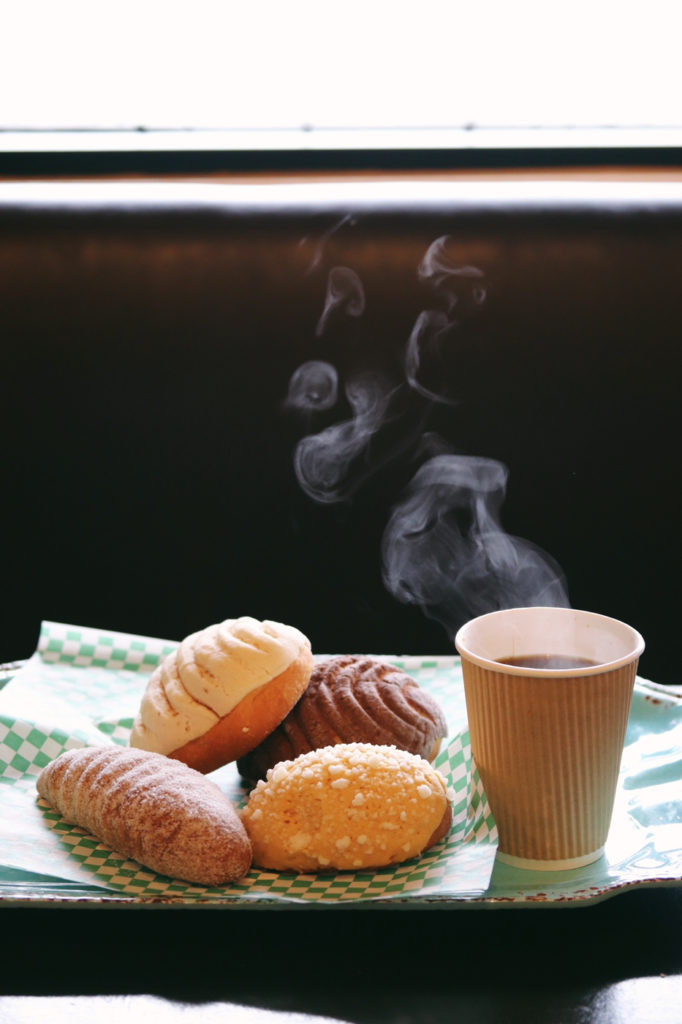
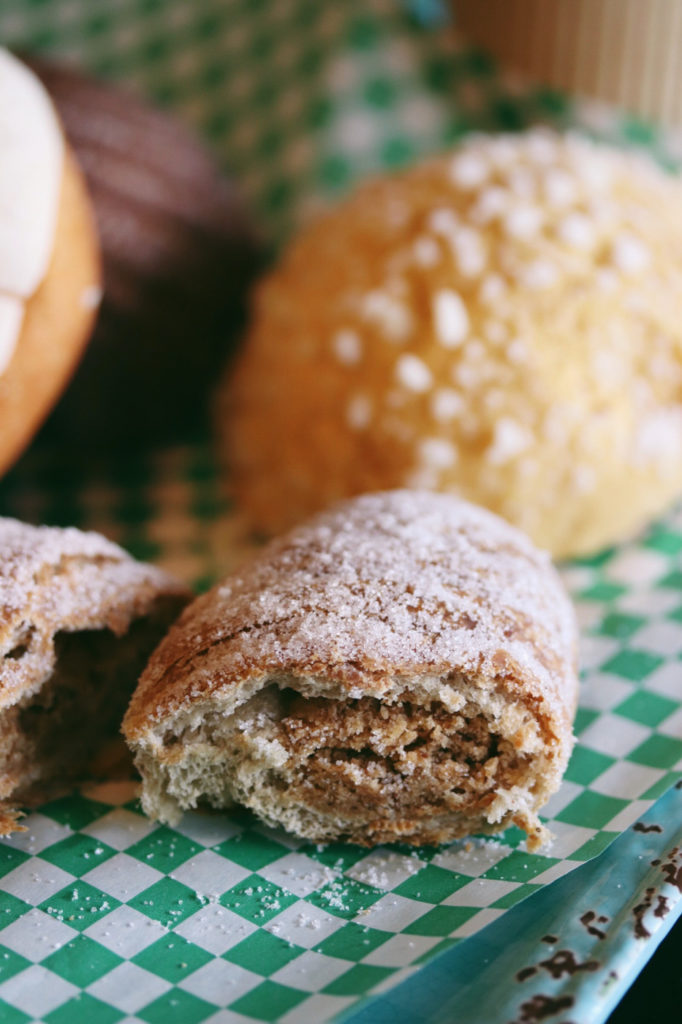
Mexican
La Mascota
Now it was time to step out of that comfort zone and explore, beginning with La Mascota bakery in Boyle Heights. Upon entering the bakery, guests are greeted with a baked goods case spanning the length of the shop, brimming with treats of all shapes and sizes, not to mention the extensive hot food and coffee menu. Thanks to the help of La Mascota’s staff, I was guided through a panorama of pan dulce (sweet bread), filling my tray with conchas, elote and chilindrina. Each of these breads has a different balance of sweetness, the bread not overly sweet on its own, but complemented by sugary exteriors. I was particularly intrigued by the elote, which contains a rich, sweet cinnamon filling inside, enjoyed alongside a cinnamon-spiked coffee. Cinnamon was incorporated into both the pan dulce and the coffee, making it a truly and correspondent distinct pairing.
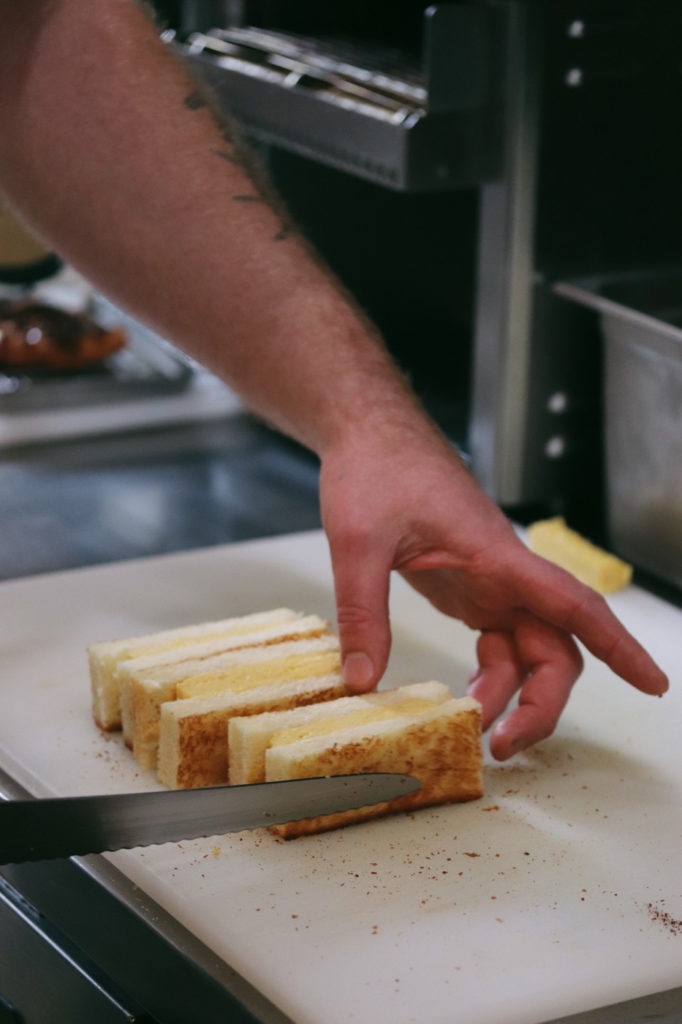
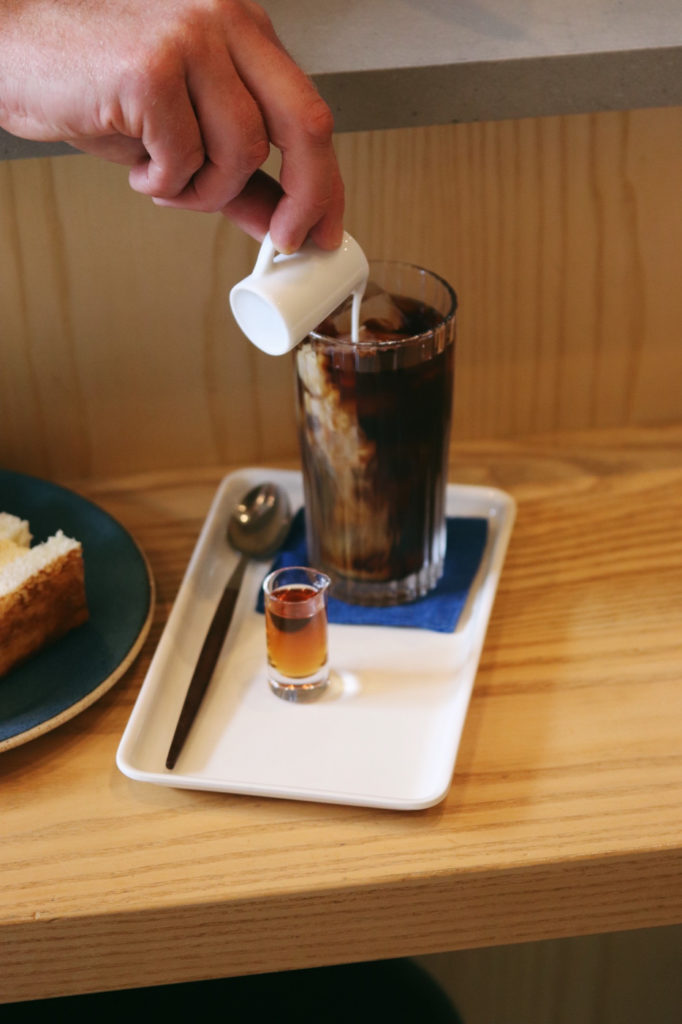
Japanese
Konbi
After exploring the sweeter side of coffee-food pairings, I was ready for something savory, which I knew I’d find at Konbi in Echo Park, a Japanese restaurant widely recognized as the home of a very visually appealing egg salad sandwich.
I first visited Japan in 2017 and found that when it comes to coffee and food culture, certainly my brief tour only taught me so much. But at Konbi, I realized I didn’t know a lot about Japanese sandwich culture.
While there are plenty of places to enjoy Japanese food in L.A., Konbi’s meticulously thought-out menu is unique in a way that is exclusively Japanese. As Akira Akuto, co-founder of Konbi, explained to me, simple sandwiches are eaten in Japan from morning to night, often as a snack between meals. Konbi takes those original Japanese touchpoints and elevates them on all the levels.
I opted for a classic layered omelette and a cold brew. To Akuto, the omelette sandwich is the star. The egg is layered using traditional sushi omelette techniques that take years to master, not to mention the dashi that goes into the egg mixture. Next to that sat my cold brew made with top-level specialty beans served on a delicate tray setting hand-picked by Akuto after hours spent mining through restaurant supply shops in Tokyo. What might look at first sight like something quite simple was in fact so insanely good because of the thought and quality put into each step along the way.
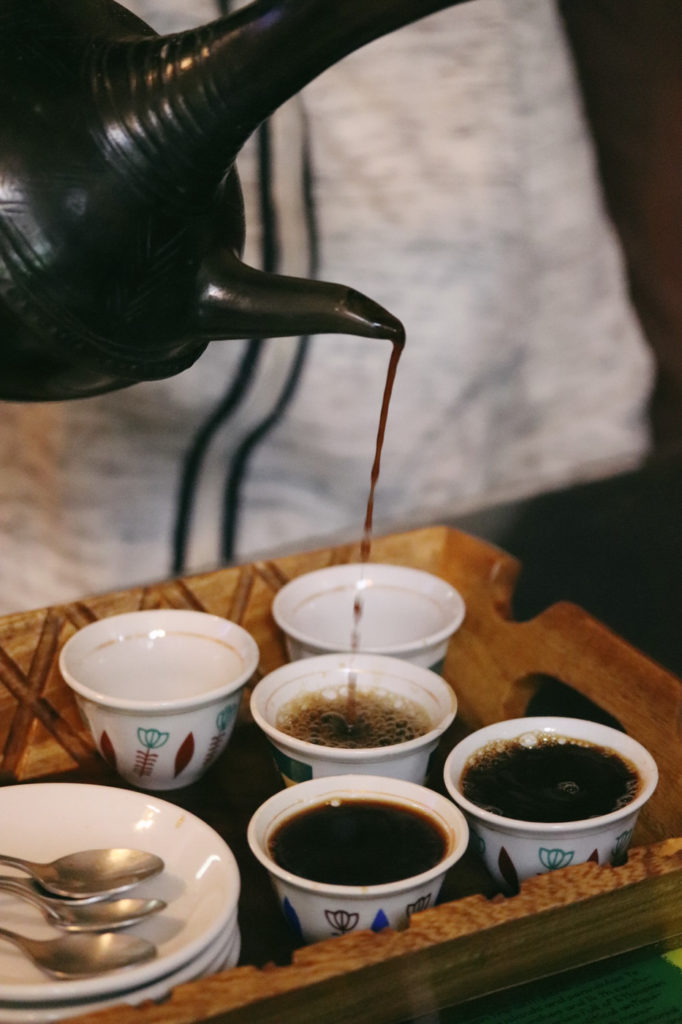
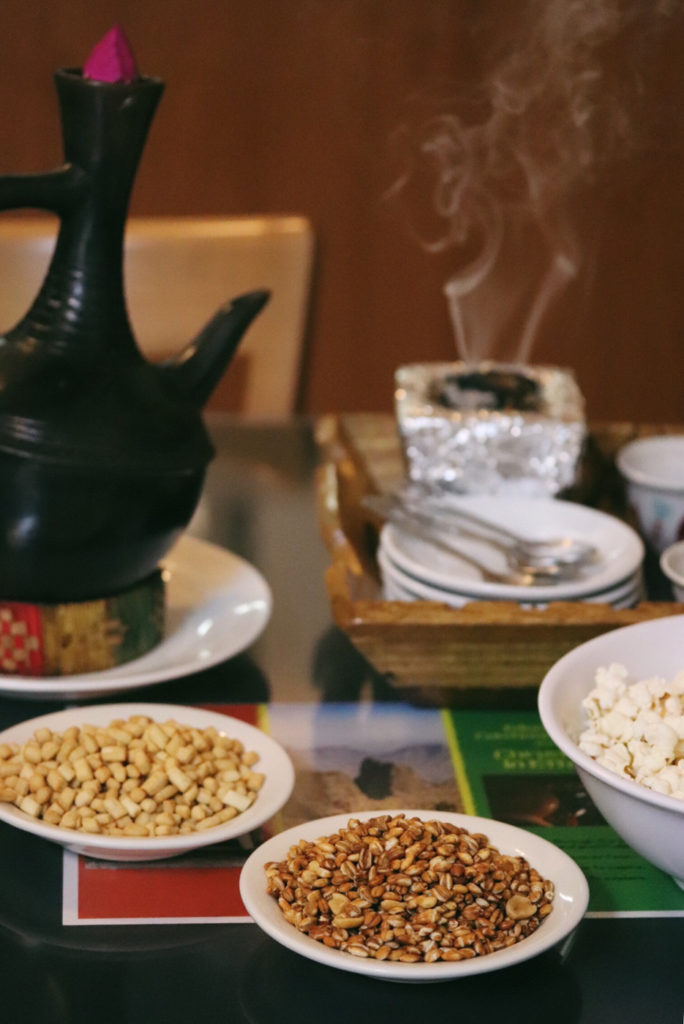
Ethiopian
Buna Ethiopian Restaurant & Market
I had learned about the traditional Ethiopian Buna coffee ceremony and trekked to Little Ethiopia to the Buna Ethiopian Restaurant & Market. A family operation at the helms of Eyob and Helena Tadesse, Buna is a transporting cultural ritual of coffee drinking in Ethiopia. While I waited for the coffee to brew, I noticed a small poster on the wall describing regions of Ethiopia. Here was marked Kaffa, apparently where the word “coffee” was derived.
Helena roasted green beans in a small pot over open flame until a deep dark aroma perfumed the kitchen. She then ground the beans and boiled them in water, meanwhile delicately setting a tray with tiny cups. As Eyob explained to me, coffee served in the Buna way is something typically enjoyed after lunch for digestion or among families when serving guests. It’s a slow ritual, never something to be rushed.
This was indeed something different from the previous spaces I’d visited. The coffee is thick and dark, typically not sugared (even sometimes served with a tiny dash of salt), and served alongside savory snacks. Eyob introduced me to dabo kolo (tiny pieces of crunchy baked bread, like a breadstick or cracker), and gebese kolo (toasted barley, peanuts, sometimes including roasted chickpeas), both of which offset the dark coffee.
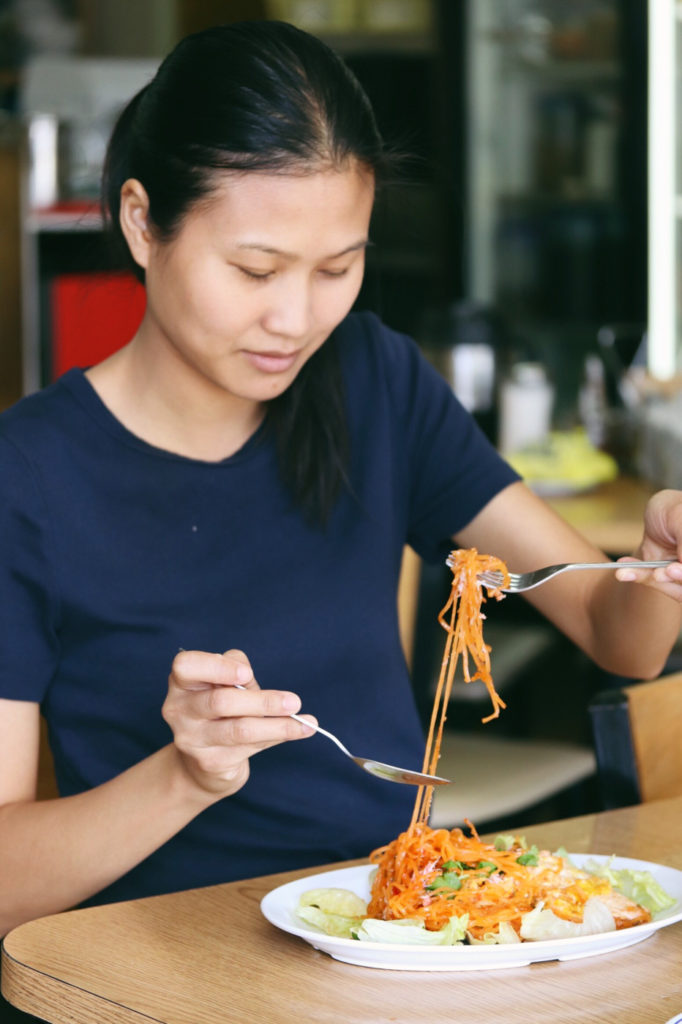
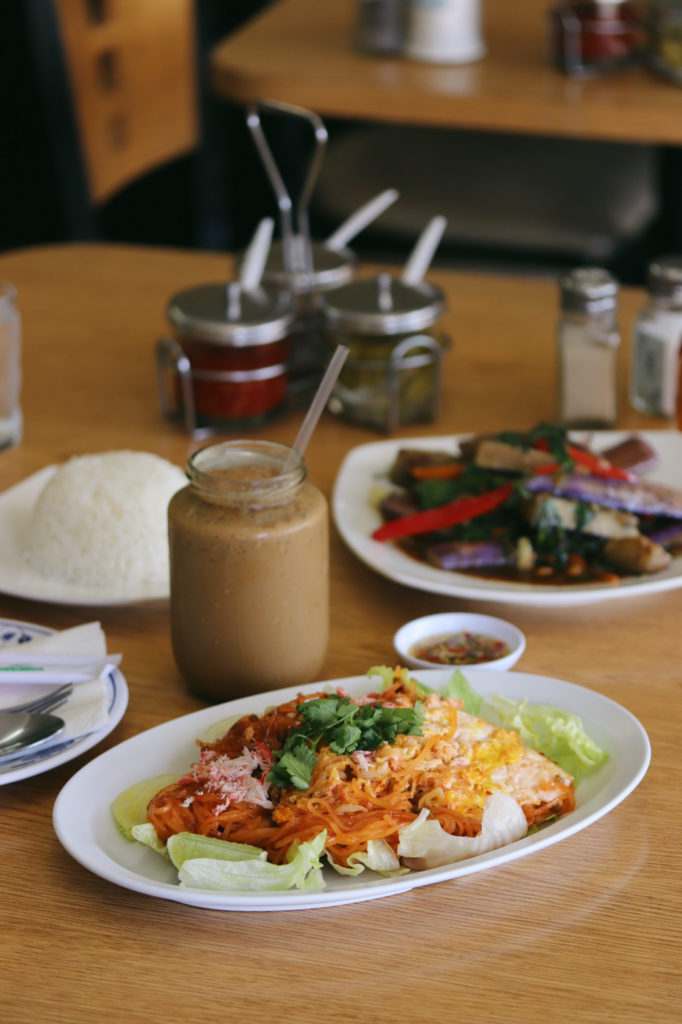
Thai
Sapp Coffee Shop
Searching for something refreshing and savory, my last stop was Sapp Coffee Shop, a Thai restaurant in Thai Town with a devoted local following. I sought out Sapp for their Thai iced coffee, a blend of coffee, condensed milk, and shaved iced. Somewhat similar to its more popular cousin, Thai iced tea, Sapp’s iced coffee is refreshing and sweet with a flavor of almost coffee ice cream. At the staff’s recommendation, this was best paired with Sen Chan Pad Pu (delicious rice noodles spiced with chili garlic, crab meat, an accoutrement of vegetables, and an egg) and their house spicy eggplant.
Opal of Sapp told me while people enjoy tea and coffee throughout the day, she has iced coffee all day long, whether between or with meals. Sapp’s iced coffee paired with a meal represented an enjoyment of coffee and food in a way that is totally beyond a bagel and a hot morning brew.





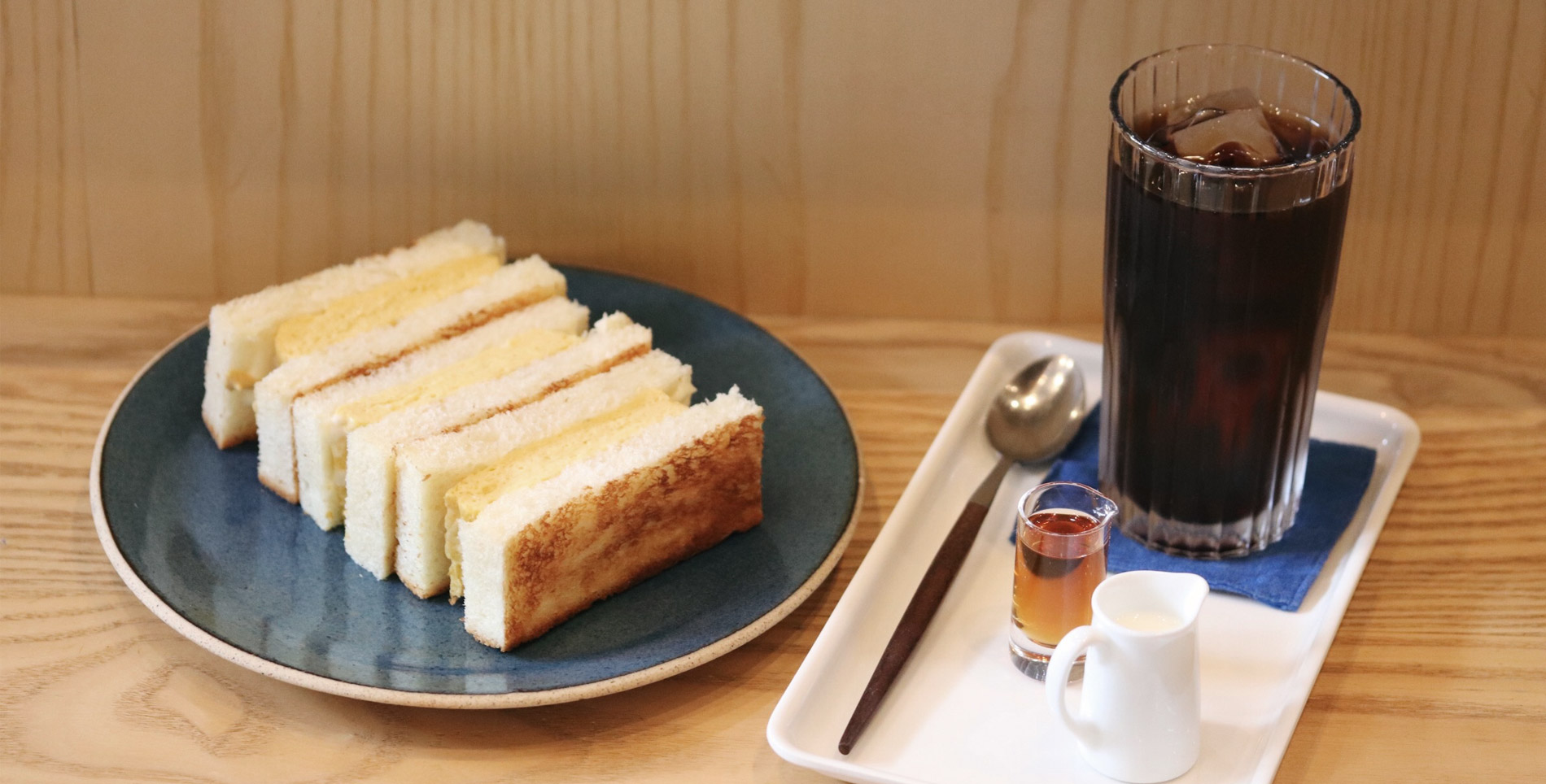

Our comments section is for members only.
Join today to gain exclusive access.